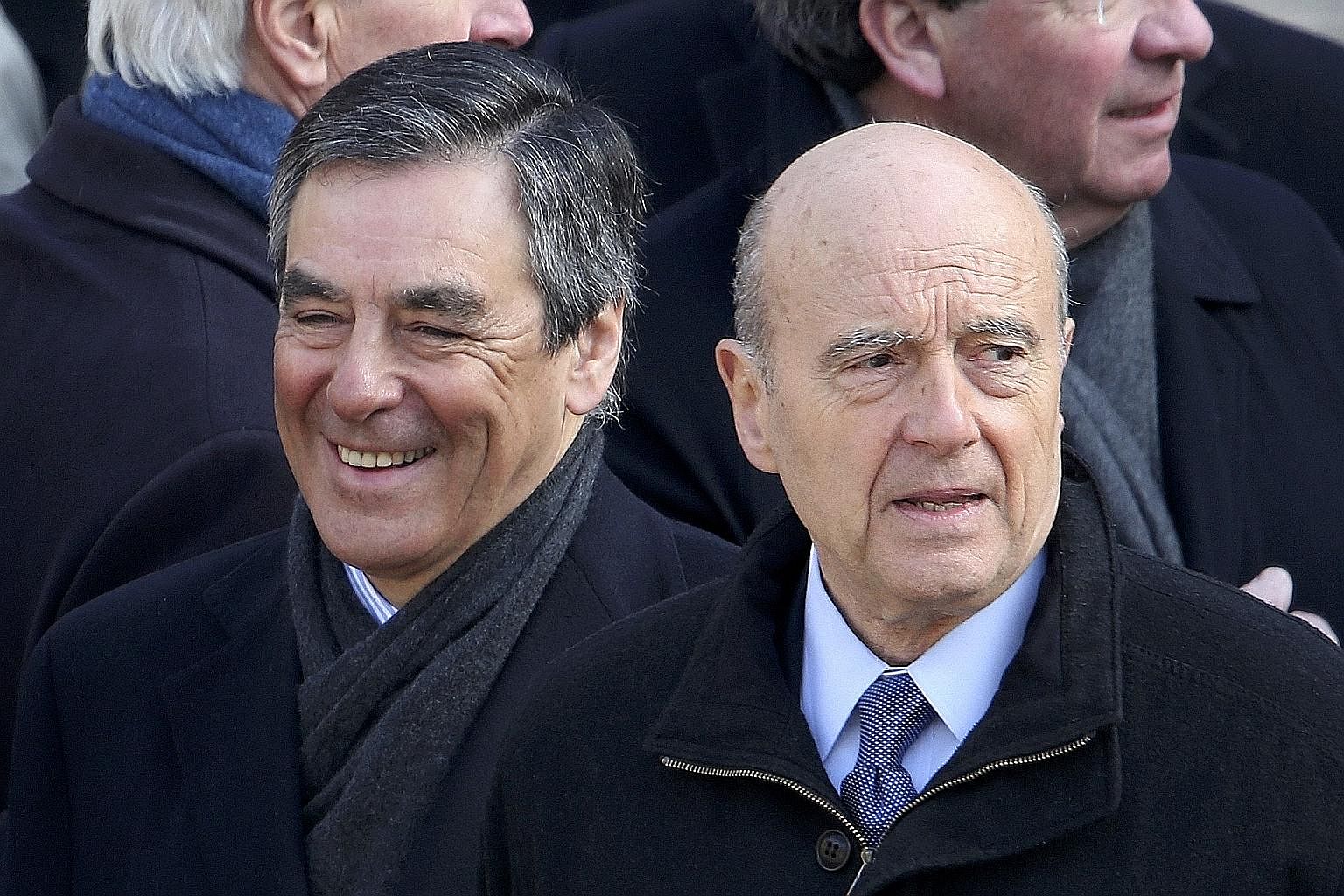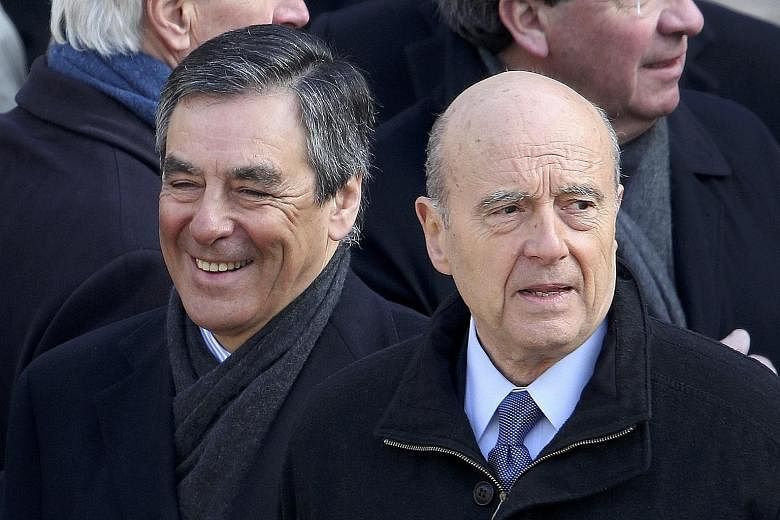France's opposition Republicans have defied expectations and stunned political observers by rebuffing former president Nicolas Sarkozy's ambitions to return to power in next year's presidential election. Instead, they have picked Mr Francois Fillon, a former prime minister with a modest domestic and international profile, as their future standard-bearer.
By placing their trust in Mr Fillon, the centre-right Republicans, who are now in opposition, are taking a considerable electoral risk. It's doubtful that Mr Fillon's agenda of radical economic reform will prove palatable to French voters in the election, which takes place over two rounds next April and May. And it's far from certain that Mr Fillon, 62, who served in various government positions for decades, can trounce Ms Marine Le Pen, the leader of the populist National Front, who is now leading in opinion polls.
France's political parties are holding US-style primaries for the first time, and procedures remain controversial. In the case of the Republicans, the ballot is open to any registered voter willing to pay €2 (S$3) and who will "profess agreement" with the centre-right's "values" - nebulous criteria which Mr Sarkozy claims is open to abuse.

Still, there is no doubt about the scale of the former president's defeat. With tallies from the 10,000 polling stations completed, Mr Sarkozy came in third among seven candidates with only 20.7 per cent of votes cast, while Mr Fillon topped the poll with 44.2 per cent. Another former prime minister, Mr Alain Juppe, was second with 28.4 per cent.
Mr Fillon and Mr Juppe will face off in a Nov 27 run-off. But given the fact that Mr Sarkozy has pledged his support to Mr Fillon by identifying him as "the best leader for the country we love", the latter's victory seems assured.
Mr Fillon, who was never regarded as a front runner before the primaries, has benefited from an exceptionally high turnout: 3.5 million voters cast their ballots, far more than there are registered Republican party members. Still, their choice is odd, if judged by regular French political standards.
Mr Fillon became education minister in the early 1990s, and served in various positions under every French president since then, culminating in a stint as prime minister under Mr Sarkozy, the man he has defeated. But on almost every other count, he breaks current French stereotypes. He is socially conservative and voted against same-sex marriages.
Almost uniquely in France, he is also an ardent admirer of Britain, and is married to a British citizen. Most importantly, however, his political platform resembles that of Lady Margaret Thatcher, the late radical Conservative premier who transformed Britain. He proposes to scrap limits on weekly working hours, allowing employers to sign flexible working contracts. He promises to slash half a million civil service jobs over the five years of his presidency, and extend the age at which French men and women can retire. He also plans to offer businesses €40 billion in tax breaks in order to revive economic growth.
Few economists doubt that such policies are what France needs. But no national French politician has won on such a reformist agenda.
Mr Francois Hollande, the current president, won power in 2012 by vowing to reverse the market reforms of his predecessors. The electorate is, therefore, unprepared for Mr Fillon's reformist zeal. Still, having succeeded in galvanising his power base, Mr Fillon is already taming his words. "I'm just a pragmatist," he said yesterday, hinting that some of his economic proposals may be watered down.
His reformist image has its advantages, for the Republicans are facing a challenge from former economy minister Emmanuel Macron, another reformist politician. Mr Macron, who is running for the presidency as an independent, has little chance of succeeding. But he can take votes away from the Republicans, and Mr Fillon is the best person to combat that danger. With Mr Fillon as their leader, the Republicans also appear more relevant that the ruling Socialists, who are lagging badly in opinion polls and have yet to select their candidate.
The main question, however, is whether Mr Fillon would be able to defeat Ms Le Pen in the second round of the presidential ballot in May. That task now looks much harder, for Mr Donald Trump's victory in the United States has given Ms Le Pen the argument that France should copy the US model by discarding its old political class.
"We will need everyone for victory," Mr Fillon admitted soon after becoming the Republicans' standard-bearer. And that's an understatement.
VIDEO
Fillon, Juppe top first round of French presidential primaries. http://str.sg/4M8A


